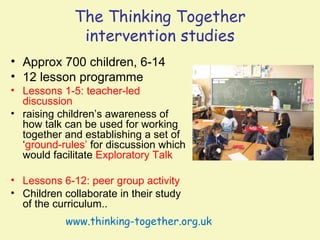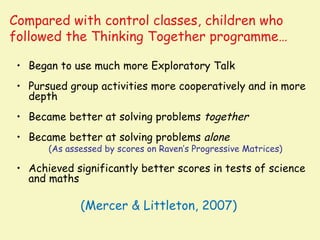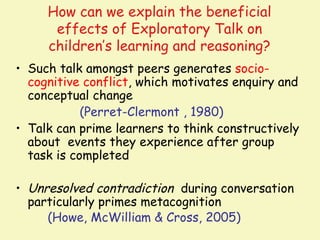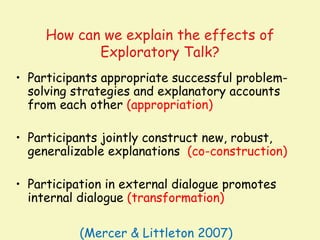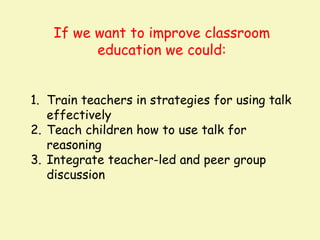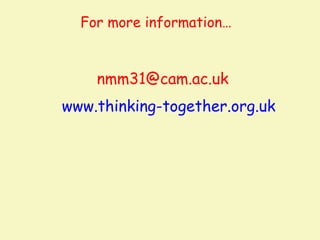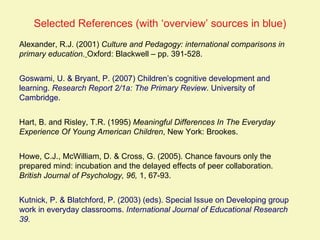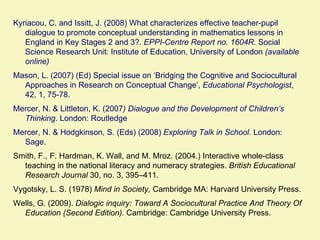The document discusses how classroom talk can improve education. It provides evidence that the quality of talk matters and that changing talk can improve learning. Studies show talk at home predicts academic success. Teachers usually use Initiation-Response-Feedback exchanges that funnel responses, but more open questioning is linked to better outcomes. Effective teachers guide understanding through questioning rather than just testing knowledge. Peer talk is often unproductive but structured discussions that seek agreement and contrasting views benefit learning. Teachers can model and teach strategies to improve classroom talk.
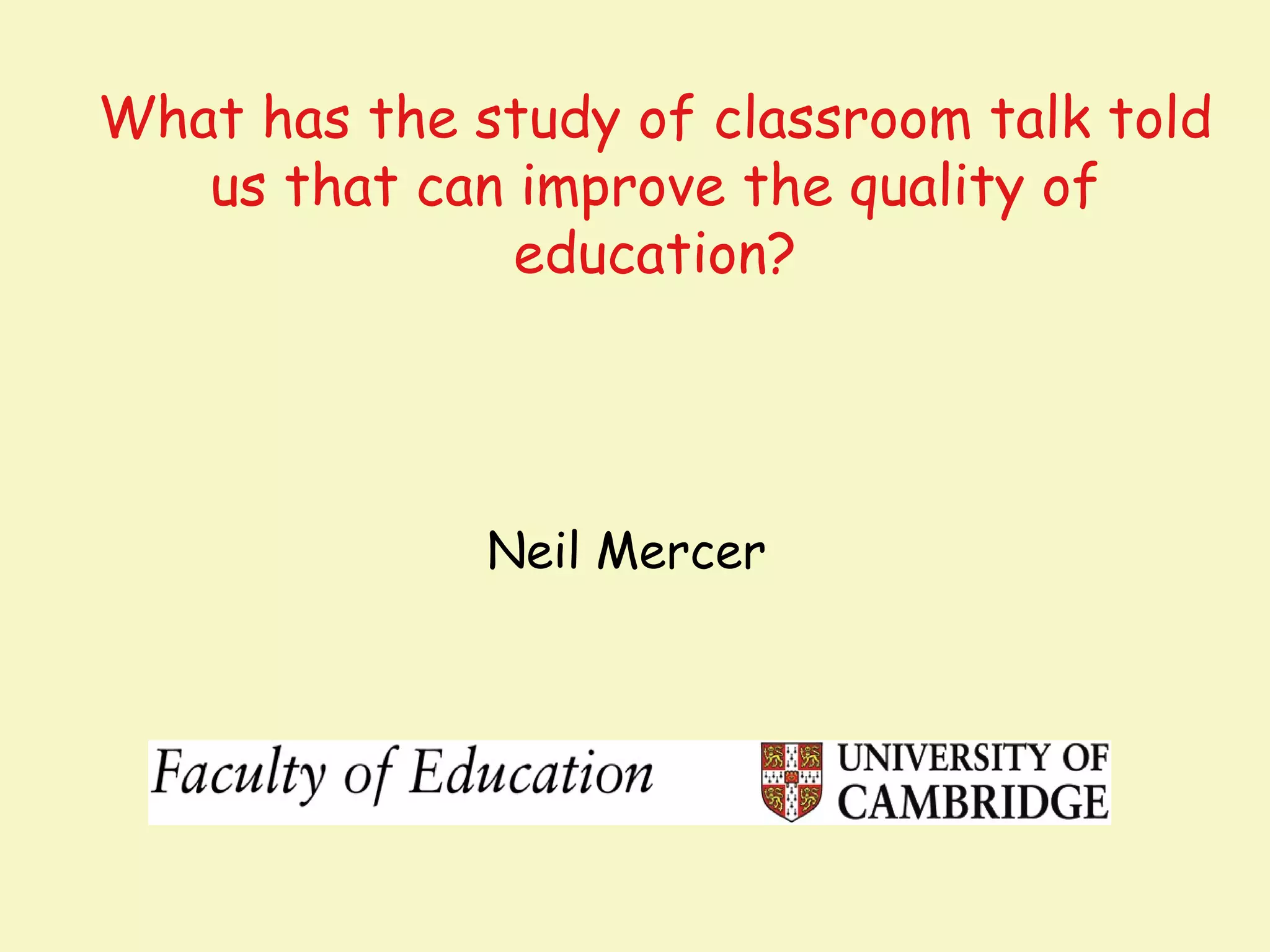
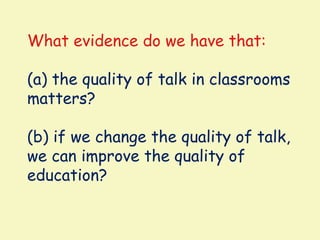
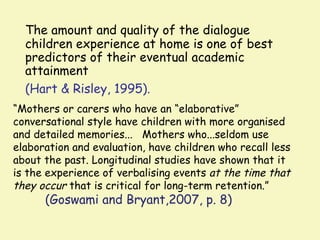
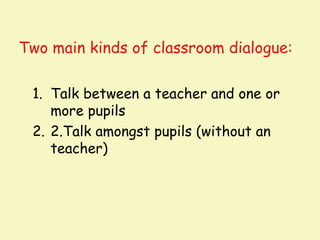
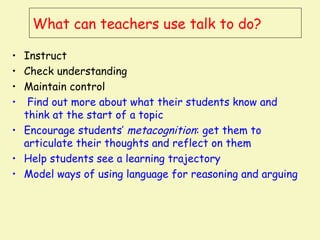
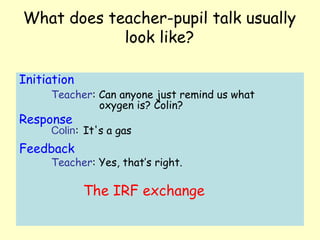
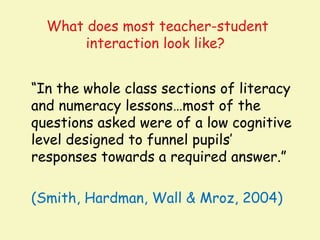
![Year 7: talking about energy (1)
Teacher: Do you remember the electric bell?
Students: Yes! [in chorus]
Teacher: OK! Did any of you notice, did any of you actually hold onto the bell
after it had...been working? What did you notice?
Suzanne: Vibration
Teacher: Well, the arm vibrated, yes. Sound. What else did you notice?
Tom: It was loud.
Teacher: That's not quite what I'm getting at.
Teacher: Remember the bell. There's the bell [holding up a bell in front of the
class]. You did the experiment. If you held onto this bit here where the wires
were [indicating], did you notice anything there?
Jason: There were sparks there.
Teacher: Heat, did you notice some heat?
Jason: There were sparks from there.
Teacher: There were?
Jason: Sparks.
Teacher: There were some sparks, yes. Let's just ignore the sparks a
minute...some heat. There was a little bit of heat there with that one.](https://image.slidesharecdn.com/professorneilmercer-120510042419-phpapp02/85/Exploratory-talk-Professor-Neil-Mercer-8-320.jpg)
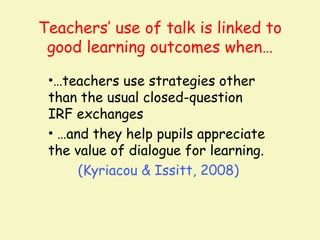
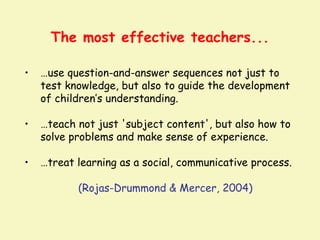
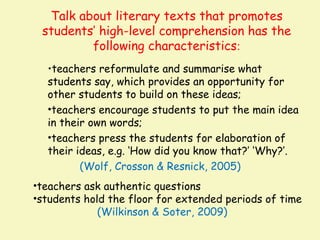
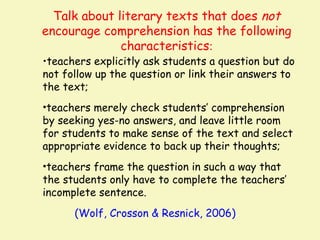
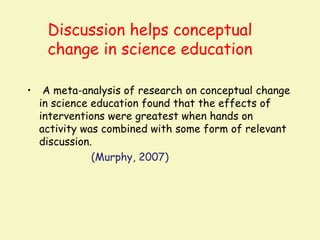
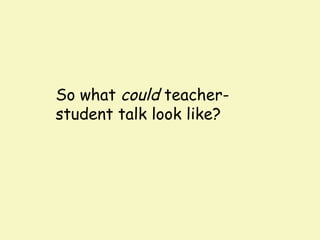
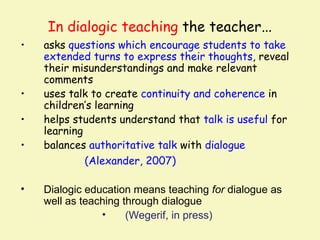
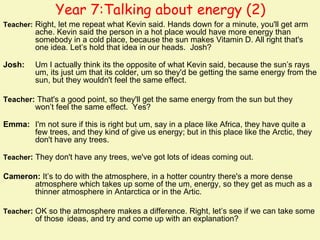
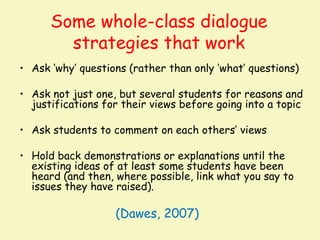
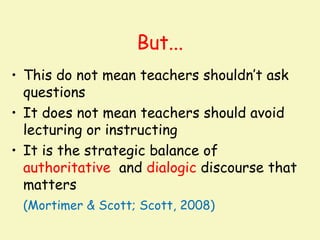
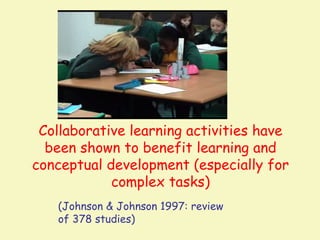
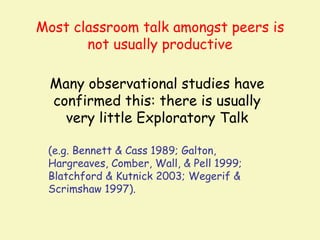
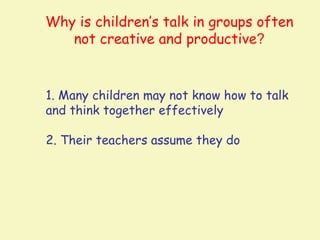
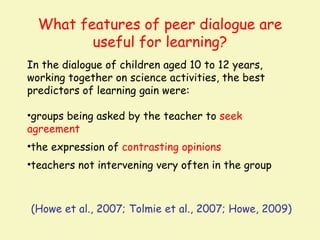
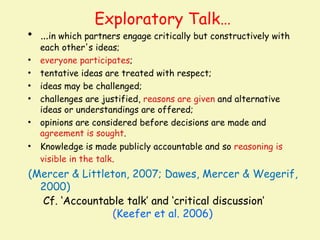
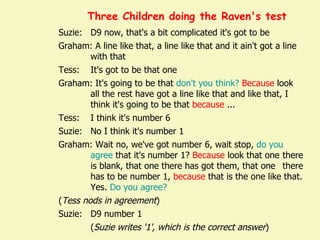
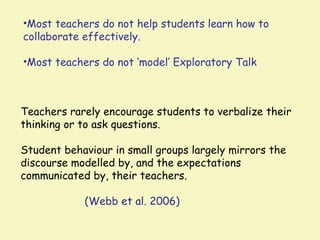
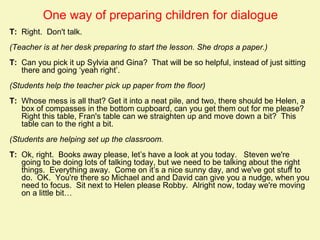
![..and another way
• T: You all have to co-operate, so it’s a group responsibility for completing the
task. It's not up to one person, it is a group responsibility. What about if you
can't make your mind up? If two people, if things aren't quite going, going as
they should be?
S1: Write down both ideas.
T: Write down both ideas, if that's part of the [problem]. And if you've got a
real problem?
S1: You could vote.
T: You could vote, good way of sorting it out.
(Various students raising their hands)
T: You still might want to write down this is the majority. Anything else we
could do, Alvie?
S1: Explain why you think your answer is right.
T: Right explain, take your time to - don't just say well I think this.
S1: Ask ‘Why?’.
T: Which is a word you guys often use.](https://image.slidesharecdn.com/professorneilmercer-120510042419-phpapp02/85/Exploratory-talk-Professor-Neil-Mercer-27-320.jpg)
